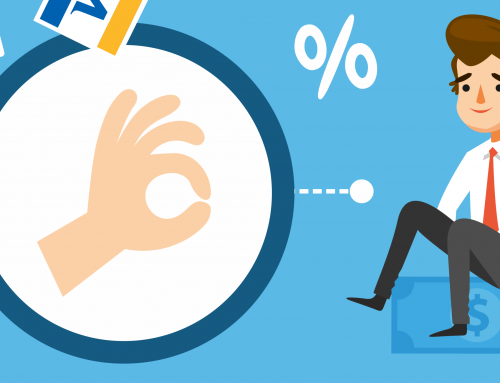Most of the time, the answer is yes, you should try to improve your credit score. But what if you already have good credit and want great credit? Is it worth the effort? That is exactly what we have asked for several years. Loan Away has now got the answer that millions of Canadians have been wondering for years. We recommend that you get a personal loan to help build your credit. If you pay off a loan worth thousands of dollars, it shows that you are responsible and can handle larger loans in the future. These larger loans can be car loans or a mortgage for example. The LA Times has written a great article, therefore, we have cited them as our main source for the infamous question “Should you even try to improve your credit score?”
How to improve your credit score and whether you should bother
My credit scores are good, but I was wondering if there is a way to bring your scores to 800 or more if your income isn’t that high. I always pay my bills on time and my credit card off each month. In the last two years, I took out a small loan to pay off a car, then paid off furniture and now am paying on six new windows for my home.
My FICO scores run from 747 to 781. I’m told the reason they aren’t higher is that the number of accounts I have is too low and that my credit report shows no recent nonmortgage installment loans or “insufficient recent information” about such loans. I’m pleased that my scores are that high, but they say you get the best low-interest loans with a score over 800.
Answer: It’s not true that you need FICO scores of 800 or above to get the best deals. The best rates and terms typically are available once your scores are above 760 or so on the usual 300-to-850 FICO scale. Some lenders set the bar lower, to 740, 720 or even less. Also, your income is not a direct factor in your credit scores — although having a higher income can lead to creditors granting larger lines of credit, which could favorably impact your scores.
If what you’re after is bragging rights, there are some ways to boost good scores even higher.
The easiest may be to make more frequent payments on your credit card to reduce your credit utilization, or the amount of available credit you’re using. If your issuer reports your statement balance each month to the credit bureaus, paying off what you owe a few days before the statement closing date will reduce your apparent credit utilization. Just remember to pay off any remaining balance once you get your bill.
Another approach would be to apply for another credit card and spread your purchases between the two cards, which also can lower your credit utilization. Either way, continue to pay your cards in full, since there’s no credit scoring advantage to carrying a balance.
Taking out another installment loan could boost your scores, but it’s not smart to borrow money you don’t need if your scores are already good.
Remember, too, that there are many different credit scoring formulas. There are different versions and generations of the FICO score as well as FICO rivals such as VantageScore.
If you achieve an 800 with one type of score, you might not with another — and whatever score you achieve, you might not keep for long. Your scores fluctuate all the time, based on the changing information in your credit files.
It’s worth the effort to improve bad or mediocre scores because those can cost you in many ways such as higher interest rates, higher insurance premiums, bigger utility deposits and fewer options for cellphone service. Improving already good scores doesn’t offer much if any payoff, so it’s usually not worth incurring extra costs to do so.
Revocable living trusts don’t help with taxes
Dear Liz: Thanks for your recent column on setting up a living trust. This sounds like something that I should do, but I have a few questions. Would federal and state taxes be due on earnings on assets in the trust? Would these taxes due be paid out of earnings of the trust? Would I continue to pay taxes on my income from sources other than the trust?
Answer: Revocable living trusts are an estate-planning tool used to avoid probate, the court process that otherwise follows death. Unlike many other types of trusts, revocable living trusts don’t trigger special tax treatment. You’re still considered the owner of the assets, so you’ll continue reporting earnings and income on your individual tax return, as you previously did.
Revocable living trusts also don’t get special estate tax treatment. Revocable living trusts are designed to eliminate the potential costs and delays of probate, not of the estate tax system. Living trusts may include provisions meant to reduce estate taxes, such as language creating a bypass trust upon death, but those are the same kinds of provisions that can be included in wills.
thumbnail courtesy of latimes.com
Want to improve your credit score without or with bad credit?
- Pay your credit card in full each month
- Never use more than 30% of your available credit
- Increase your credit card limit
- Have different types of loans ( Car, phone, house, etc )
- Be consistent
Not so difficult to understand right? Basically, do not spend too much, have more responsibilities, and always pay in full when due. Some financial companies want this to be confusing, but it is simple. The hard part is implementing this to daily life. Loan Away understands that changing your lifestyle may be difficult, however, this must be done if you want to improve your credit score and have less debt. Paying off large amounts of debt is no easy task, that is why a plan is necessary. For more information about getting debt free, improve credit score, debt consolidation, personal loans, or anything that concerns your financial situation, Loan Away blog is the place to be. We post at least one article per day to ensure clients have as many resources possible to better themselves in today’s Canadian economy.



